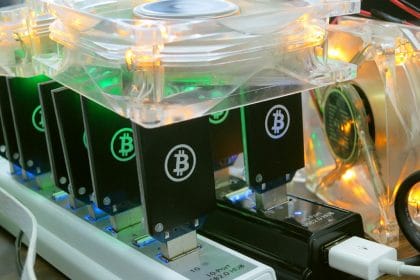There is a huge competition between the opposite mining pool camps for the hash rate occupancy to gain dominance over the network.
In the last few days, the rift between Bitcoin Cash miners has escalated very quickly. Two camps of BCH miners will be moving to their own paths after the scheduled hard fork in the BCH network likely to take place on Nov. 15th.
The data from Coin Dance shows that Bitcoin Cash mining pools will run a new version of the software Bitcoin SV. Bitcoin SV is the Bitcoin Satoshi Version, an alternative to the most widely used network Bitcoin ABC. Early trends suggest that Bitcoin SV will pull 76.39 percent of the network’s existing mining power. However, it is still early to tell whether the BCH miners will update their computers to run the Bitcoin SV software.
Mining Pools of Opposite Camps Lock Horns
The mining pool is basically the collection of individual and company supporters providing processing power to the crypto network. The mining pools for Bitcoin ABC and Bitcoin SV will surely be locking horns to gain dominance on the BCH network. Australian cryptographer and self-acclaimed Satoshi ‘Craig Wright’ has gone to issue a threat to the ABC network. Threatening ABC supporters, Wright even vowed to destroy the ABC network.
Moreover, the hash power currently shows that there’s a huge advantage for Bitcoin SV. CoinGeek, a platform by Wright supported Calvin Ayre now controls more than 40% of the overall has power. On the other hand, Mempool and okminer have lost significant hash power. Both are currently having a hash power of less than 4% each.
On the other hand, mining pools supporting Bitcoin ABC look to making some gains ahead. Antpool, BTC.com and Bitcoin.com control nearly 4.86, 6.25 and 8.33 percent of the total hash power. Both – Antpool and BTC.com are in favor of Bitcoin ABC and controlled by mining hardware giant Bitmain.
Many of the mining pools remain largely neutral at this point and not announced their support to either network.
Asian Traders Gear Up for BCH Purchase
While the BCH miners engage in their own war, Asian traders are stacking up their BCH holdings. These traders are buying in anticipation that the hard fork will give them two coins, the combined value of which will be higher than the existing BCH Price. Head of markets at Kenetic Capital, James Quinn says that many institutions have got into this act. Quinn said:
“The number of requests and interests in the area increased remarkably in the general market development.”
In a word with CoinDesk, Quinn added:
“I think this type of trade is accessible and can be understood by institutions even if they don’t have a lot of crypto experience, because in some way it’s similar to a special dividend or stock split.”
Traders Betting On BCH Price to Fall
A number of traders believe that BCH price will drop post the hard fork. The number of traders shorting BCH agianst those going long over its price rise is in the ratio of 2:1. Just a day before the hard fork, one can see a huge market activity around Bitcoin Cash. In the last 24 hours, both BCH longs and shorts have reached their all-time high.
next